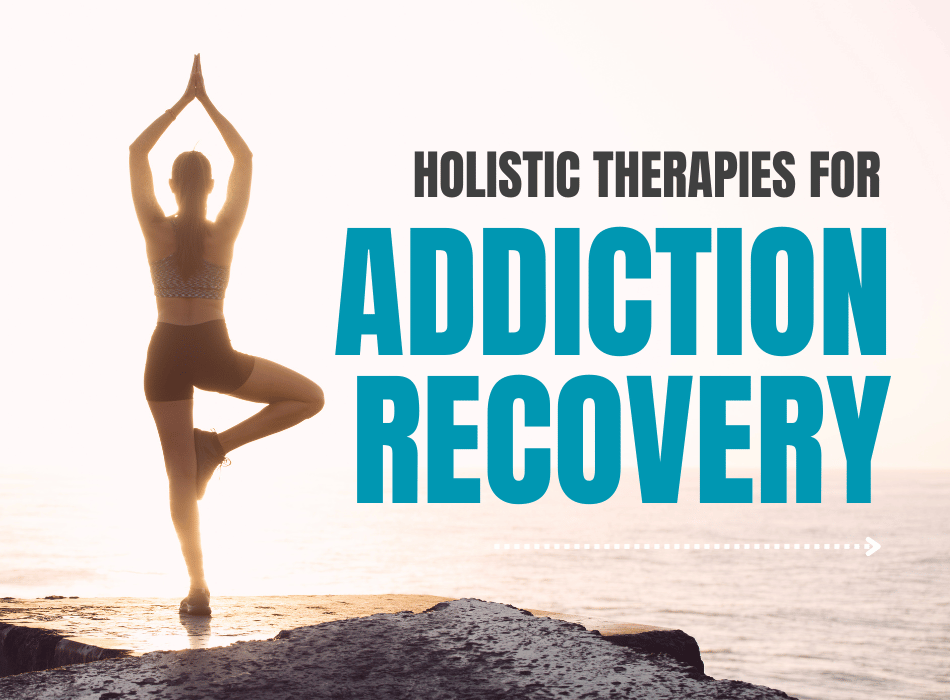
Drug addiction is a complex condition that affects the mind, body, and spirit. While evidence-based treatments like medication-assisted therapy and counseling are essential, holistic approaches can complement these methods by addressing broader dimensions of recovery: emotional, physical, spiritual, and social.
What Is Holistic Addiction Recovery?
Holistic addiction recovery integrates complementary therapies to support mental, emotional, and physical health—working alongside conventional treatments. The goal is to heal the whole person, not just eliminate substance use.
Key Holistic Therapies and Their Benefits
1. Mindfulness, Yoga & Meditation
These practices enhance self-awareness, emotional regulation, and present‑moment focus. Mindfulness training helps curb cravings by teaching individuals to observe thoughts without reacting. Yoga combines physical movement with breath awareness to reduce stress, improve mood, and restore the mind‑body connection.
One evidence-based program, Mindfulness-Oriented Recovery Enhancement (MORE), pairs mindfulness with cognitive reappraisal and savoring skills. Research shows it significantly reduces addictive behaviors, emotional distress, and pain while increasing positive emotions and meaning.
2. Art, Music & Creative Therapies
Art and music therapy offer non‑verbal, expressive outlets to process trauma, anxiety, or shame. Individuals can explore emotions creatively in a safe, therapeutic environment. These forms of therapy support emotional expression, self‑esteem, and stress reduction.
3. Acupuncture, Massage & Bodywork
Acupuncture helps reduce withdrawal symptoms and cravings by balancing energy pathways in the body. Massage therapy boosts detoxification, alleviates pain and tension, and promotes release of natural endorphins, which elevate mood. Both forms complement traditional treatment by supporting physical recovery and reducing anxiety.
4. Nature-Based & Recreation Therapy
Time spent in nature—through hiking, kayaking, gardening, or forest bathing—has measurable benefits: reduced stress, improved mood, and a newfound sense of meaning. These activities foster physical exercise, environmental connection, and group bonding—powerful alternatives to substance use.
5. Nutrition, Exercise & Wellness
Good nutrition and consistent physical activity accelerate recovery, rebuild strength, and improve mental health. Research shows that adding moderate exercise to treatment programs can reduce substance use by around 75% and lower depressive symptoms by 28%—especially when done under guidance.
6. Energy Healing & Animal‑Assisted Therapy
Energy healing practices like Reiki or Qi Gong aim to restore balance and reduce anxiety or cravings. Animal-assisted therapies, including equine therapy, help build trust, emotional resilience, and connection through caring relationships with animals. Both support emotional healing and empowerment.
How Holistic Approaches Work with Traditional Treatment
These therapies are most effective when integrated alongside conventional treatments such as counseling, behavioral therapy, medication-assisted treatment, or peer support. Tailored programs support physical health, emotional expression, stress management, and skill building.
Holistic therapies also offer healthy coping tools and structure—helping to replace substance use with meaningful activities and strengthening long‑term recovery.
Putting It All Together: A Personalized Recovery Journey
An individualized recovery plan may include:
- Mindfulness training or MORE for craving and emotion regulation
- Yoga, breathwork, and moderate exercise for physical stamina and mental resilience
- Art or music therapy for emotional expression
- Nature‑based recreation therapy to rebuild connection and meaning
- Nutritional counseling for body restoration
- Optional therapies like acupuncture, massage, animal-assisted therapy, or energy healing for additional support
Conclusion
Holistic approaches to recovery are powerful complements to standard treatment, embracing the mind, body, and spirit. By combining evidence-based therapies with wellness practices—such as mindfulness, creativity, movement, and nature—individuals can embark on a more resilient, balanced, and sustainable path to healing. Recovery becomes a journey of transformation, not just remission.